Island girl Karen left Puerto Rico to attend college stateside and afterward alternated her residency between the two for many years. She eventually settled in Arkansas over 15 years ago. Now, she is a student again, this time at the Center for Arkansas Farms and Food. She enrolled in the CAFF Farm School, hoping to someday develop a small farm with a commercial kitchen. Karen is currently searching for farmland and wants to grow, cook, and produce specialty foods, especially from her Hispanic culture.
Karen says a good Sofrito requires different peppers and herbs than locally available. Specialty ingredients like these are the basis of Puerto Rican cooking, and very few are grown here. One of her primary farming production goals is to provide more to the local market. She’s interested in utilizing the Arkansas Food Innovation Center facilities to create value-added Hispanic cuisine products from her farm.
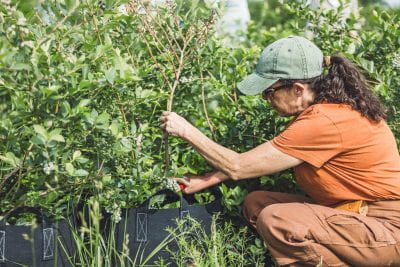 Karen also hopes to make a social difference through farming saying “Hispanics are the second largest ethnicity in the U.S., and they comprise 86% of the farm labor in the states, but only about 3% of farm owners,“ she says, citing the latest USDA farming survey statistics. “I want to inspire more Hispanics to consider farm ownership, especially females.” She envisions someday teaching people on her farm how to grow food and cook what they grow.
Karen also hopes to make a social difference through farming saying “Hispanics are the second largest ethnicity in the U.S., and they comprise 86% of the farm labor in the states, but only about 3% of farm owners,“ she says, citing the latest USDA farming survey statistics. “I want to inspire more Hispanics to consider farm ownership, especially females.” She envisions someday teaching people on her farm how to grow food and cook what they grow.
Karen has long worked as a translator and interpreter, putting her in contact with many new immigrants to the country. She works primarily with school districts and non-profit organizations as a family liaison, often helping with parent-teacher conferences when the family doesn’t speak English. She empathizes with their struggle, “I came stateside with strong English and an understanding of the culture, but many do not. They are trying their best, but a language barrier is a huge hindrance. It limits their resources to help their children succeed.” Karen empathizes with how difficult it can be to leave your language and culture behind, noting they are what bind communities together.
Karen is consistently drawn to the crossroads of food, community, culture, and helping people. Farming fits right in that sweet spot, bringing her passions and superpowers together.
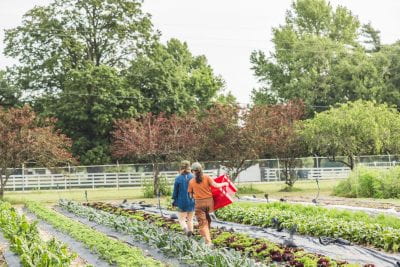 “I didn’t plan to be a farmer,” she laughs, “but life takes you down a path, and something leads to the next path, and there you are. My journey started with wanting to feed my family healthy, nutritious food.” A deep dive into the connection between soil health and the nutritional value of food was her initial motivation to learn.
“I didn’t plan to be a farmer,” she laughs, “but life takes you down a path, and something leads to the next path, and there you are. My journey started with wanting to feed my family healthy, nutritious food.” A deep dive into the connection between soil health and the nutritional value of food was her initial motivation to learn.
Her first experience with growing food was volunteering at a community garden while living in Oregon when her children were young. “I love community gardens. I would always find one to volunteer at in each city we lived in,” she says. Those gardens ignited a passion for growing food that’s now a desire to farm on a larger scale.
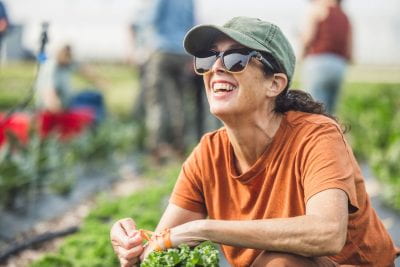 Karen currently works with the Fayetteville Farmers Market, assisting with online deliveries that are picked up at the Fayetteville Library. She helps with the Saturday set-up, and assisting vendors with sales. “I love it so much, not only for the incredible selection of seasonal products but for the kind and generous farmers that we have. They share the fruits of their labor with such pride, “Karen says. “I sincerely appreciate the relationships I’ve built in the farmers market community over the last 10 years. “
Karen currently works with the Fayetteville Farmers Market, assisting with online deliveries that are picked up at the Fayetteville Library. She helps with the Saturday set-up, and assisting vendors with sales. “I love it so much, not only for the incredible selection of seasonal products but for the kind and generous farmers that we have. They share the fruits of their labor with such pride, “Karen says. “I sincerely appreciate the relationships I’ve built in the farmers market community over the last 10 years. “
Her experience there was a significant factor in her decision to apply for the CAFF Farm School. Several CAFF Mentor Farmers are active in the market. The farmers were always willing to share their knowledge but she wanted to learn more, and faster. As an empty nester, she pondered life’s next steps when she heard about the CAFF programs.
Karen is on the journey now and can’t believe how much she’s absorbed and experienced. “I’ve learned in months what would have taken me years to learn otherwise,” she says. CAFF is a comprehensive 11-month program that teaches farm production and entrepreneurship. “The selection of teachers is excellent,” Karen says, “From business to production and fieldwork. It’s a great program and I highly recommend it to anyone passionate about farming. You don’t have to be a farm owner after completion. You could learn to manage one, work on a farm, or grow food for your family. There never seem to be enough field hands for area farms. The opportunities are out there, and CAFF offers the tools. It’s a good learning environment.”
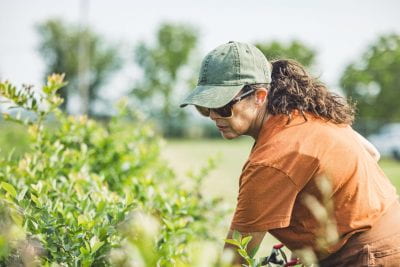 Karen’s favorite things about farming are the community and the meaningful work. “There’s nothing more rewarding than feeding others, and it brings me peace,” she says. Being connected to the earth rejuvenates her even after a whole day of working on the farm. She returns home dirty and tired but feeling great about the day’s work.
Karen’s favorite things about farming are the community and the meaningful work. “There’s nothing more rewarding than feeding others, and it brings me peace,” she says. Being connected to the earth rejuvenates her even after a whole day of working on the farm. She returns home dirty and tired but feeling great about the day’s work.
The community is sure to benefit as Karen fully embraces her skills and passions in the Northwest Arkansas Food System. Now we all just want to know where the line forms for Karen’s authentic Puerto Rican sofrito made with locally grown herbs and veggies!
If you share Karen’s love of growing food, maybe CAFF Farm School is a good fit for you. CAFF also offers Beginning Farmer Classes, Growers Schools, Workshops, Networking Events, and the Farm Apprenticeship Program. Learn about all these and more at LearnToFarm.org where you can register to receive email updates about all upcoming events.
The Center for Arkansas Farms and Food is part of the University of Arkansas System, Division of Agriculture.
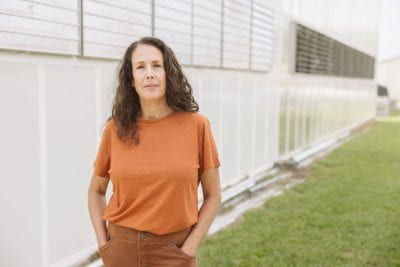
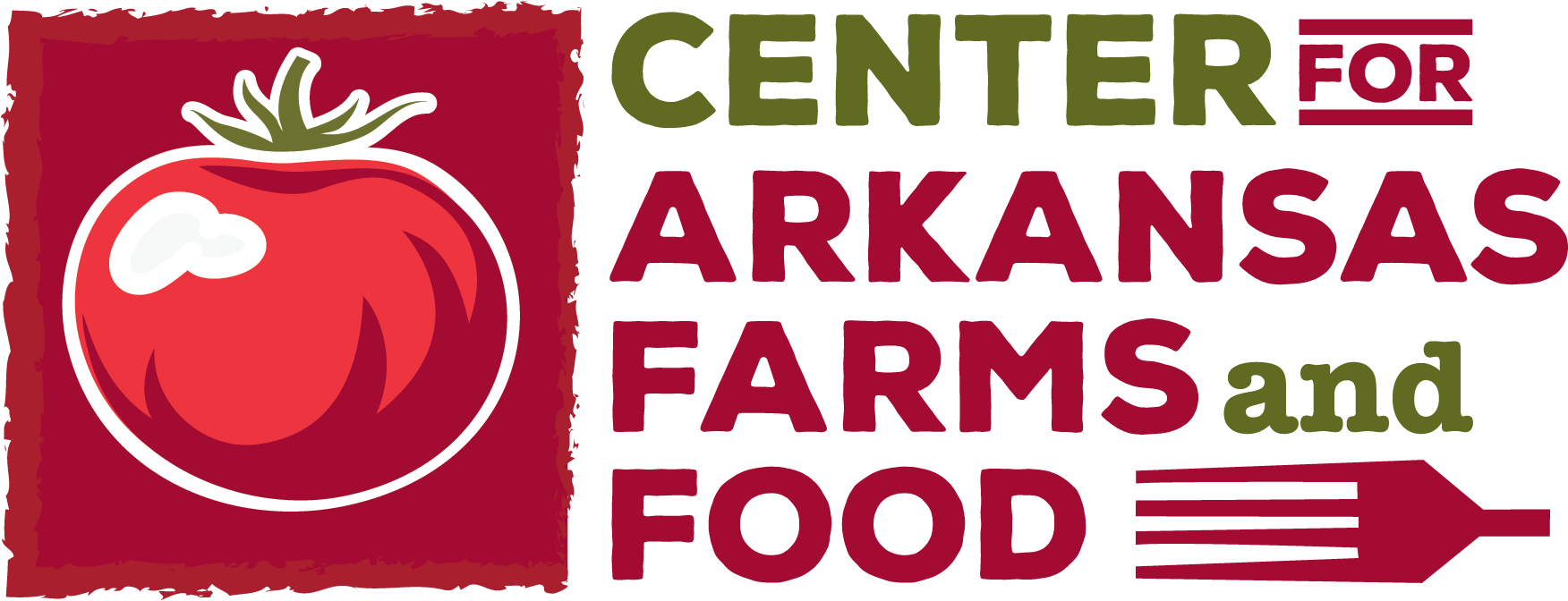
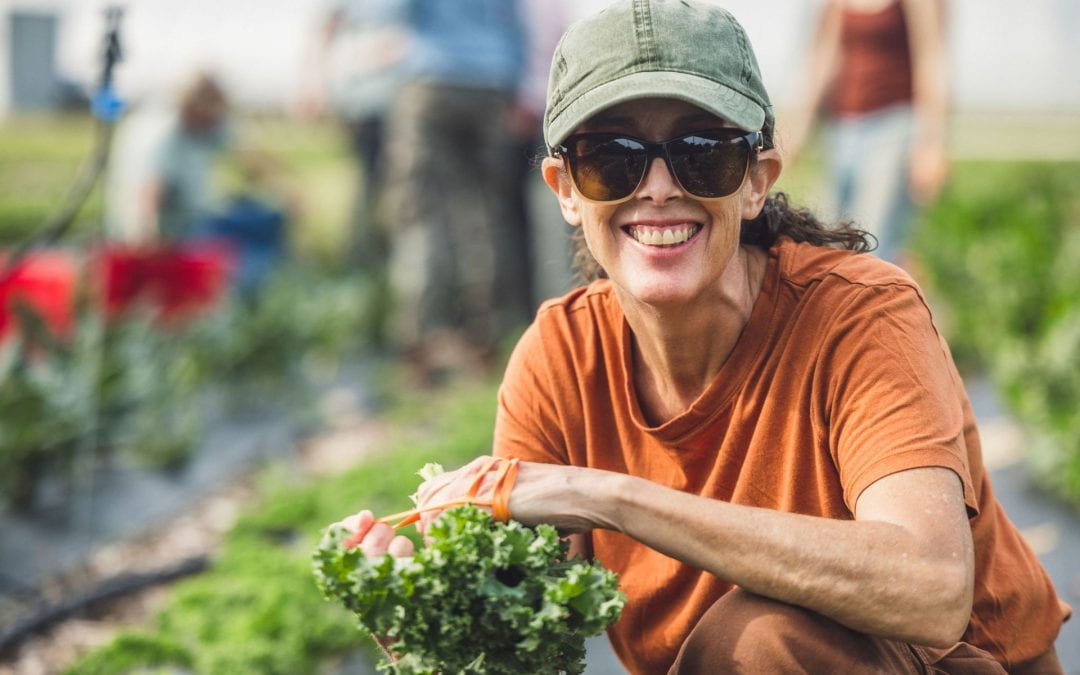
Recent Comments